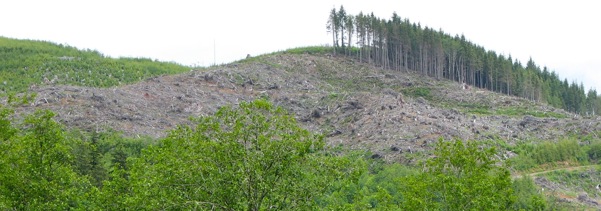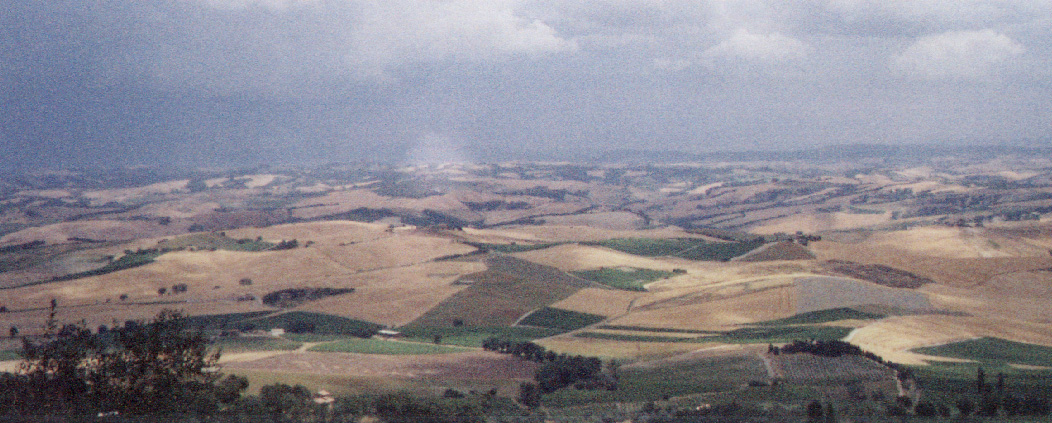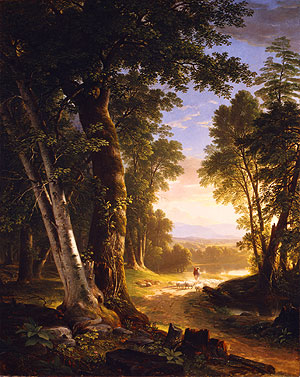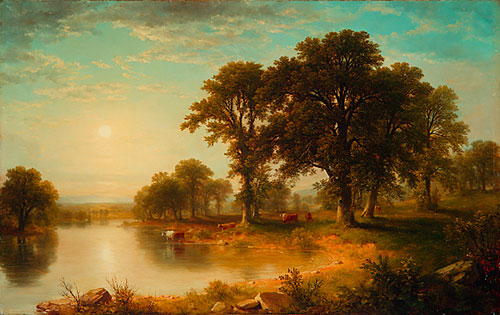 Natural Values
Natural Valuesstability of nature | restoration | deforestation & eroded lands
George Perkins Marsh saw what few ever can see: ways to compensate for profligate behavior that endangers our future.

The ravages committed by man subvert the relations and destroy the balance which nature had established between her organized and her inorganic creations; and she avenges herself upon the intruder, by letting loose upon her defaced provinces destructive energies hitherto kept in check by organic forces destined to be his best auxiliaries, but which he has unwisely dispersed and driven from the field of action. When the forest is gone, the great reservoir of moisture stored up in its vegetable mould is evaporated, and returns only in deluges of rain to wash away the parched dust into which that mould has been converted. The well-wooded and humid hills are turned to ridges of dry rock, which encumbers the low grounds and chokes the watercourses with its debris, and–except in countries favored with an equable distribution of rain through the seasons, and a moderate and regular inclination of surface–the whole earth, unless rescued by human art from the physical degradation to which it tends, becomes an assemblage of bald mountains, of barren, turfless hills, and of swampy and malarious plains.

Once forested Tuscan hillsides J.V, Siry, 2009.
There are parts of Asia Minor, of Northern Africa, of Greece, and even of Alpine Europe, where the operation of causes set in action by man has brought the face of the earth to a desolation almost as complete as that of the moon; and though, within that brief space of time which we call 'the historical period,' they are known to have been covered with luxuriant woods, verdant pastures, and fertile meadows, they are now too far deteriorated to be reclaimable by man, nor can they become again fitted for human use, except through great geological changes, or other mysterious influences or agencies of which we have no present knowledge, and over which we have no prospective control. The earth is fast becoming an unfit home for its noblest inhabitant, and another era of equal human crime and human improvidence, and of like duration with that through which traces of that crime and that improvidence extend, would reduce it to such a condition of impoverished productiveness, of shattered surface, of climatic excess, as to threaten the depravation, barbarism, and perhaps even extinction of the species.
— George Perkins Marsh, Man and Nature, or Physical Geography as Modified by Human Action. (1864), p. 42-3.
stability of nature | restoration | deforestation & eroded lands
 Stability of Nature.
Stability of Nature.
Nature, left undisturbed, so fashions her territory as to give it almost unchanging permanence of form, outline, and proportion, except when shattered by geologic convulsions; and in these comparatively rare cases of derangement, she sets herself at once to repair the superficial damage, and to restore, as nearly as practicable, the former aspect of her dominion.
p. 28.
Restoration of Disturbed Harmonies.

In reclaiming and reoccupying lands laid waste by human improvidence or malice, and abandoned by man, or occupied only by a nomade or thinly scattered population, the task of the pioneer settler is of a very different character. He is to become a co-worker with nature in the reconstruction of the damaged fabric which the negligence or the wantonness of former lodgers has rendered untenantable. He must aid her in reclothing the mountain slopes with forests and vegetable mould, thereby restoring the fountains which she provided to water them; in checking the devastating fury of torrents, and bringing back the surface drainage to its primitive narrow channels; and in drying deadly morasses by opening the natural sluices which have been choked up, and cutting new canals for drawing off their stagnant waters.
p. 35.
George Perkins Marsh, Man and Nature, or Physical Geography as Modified by Human Action. (1864),